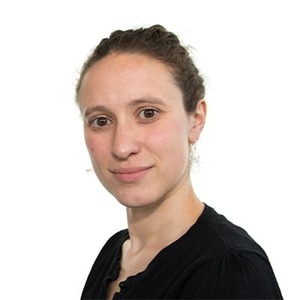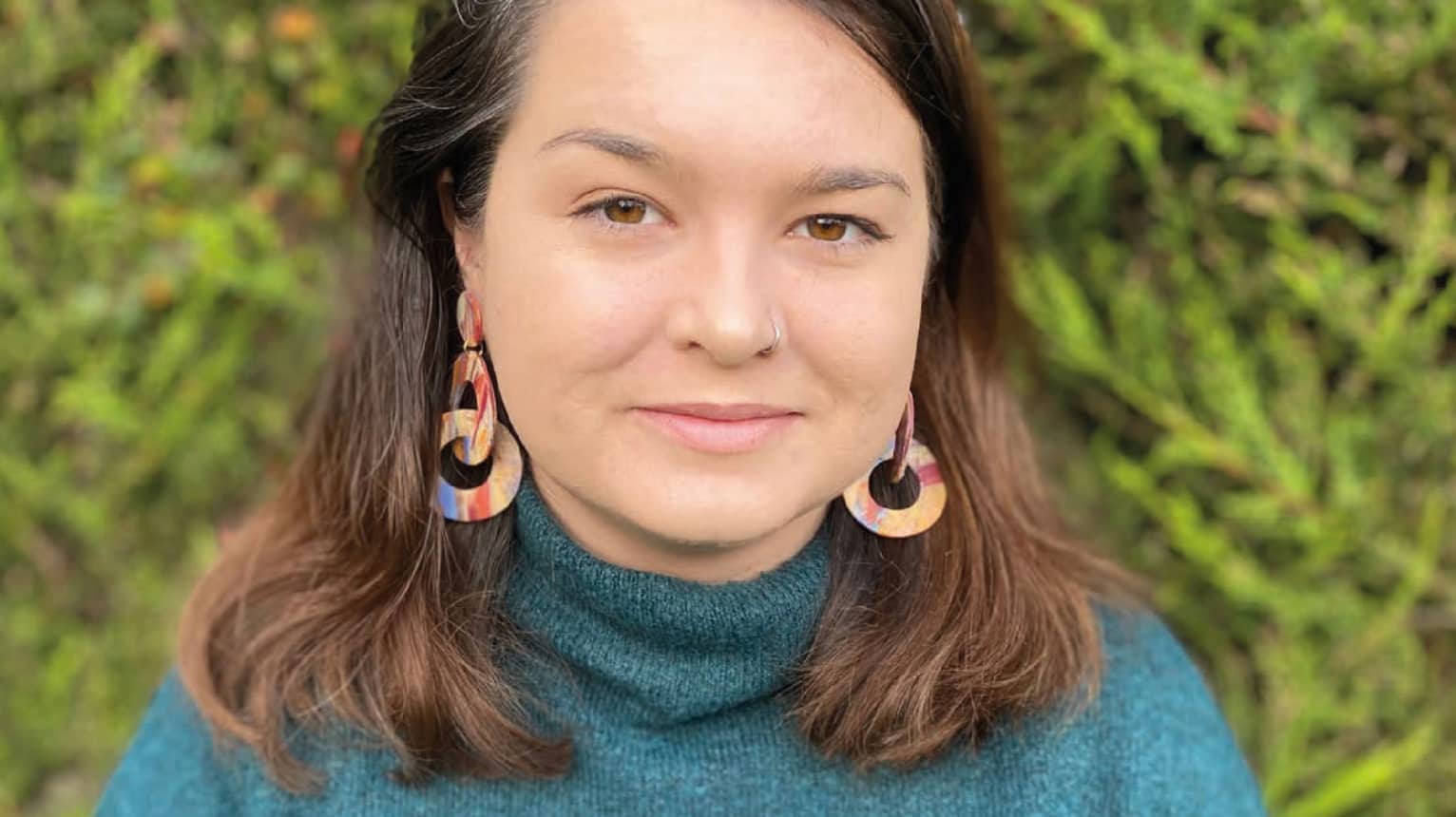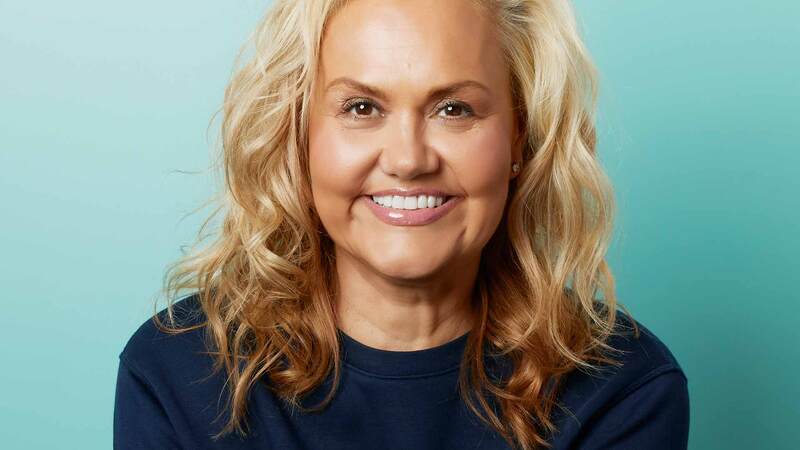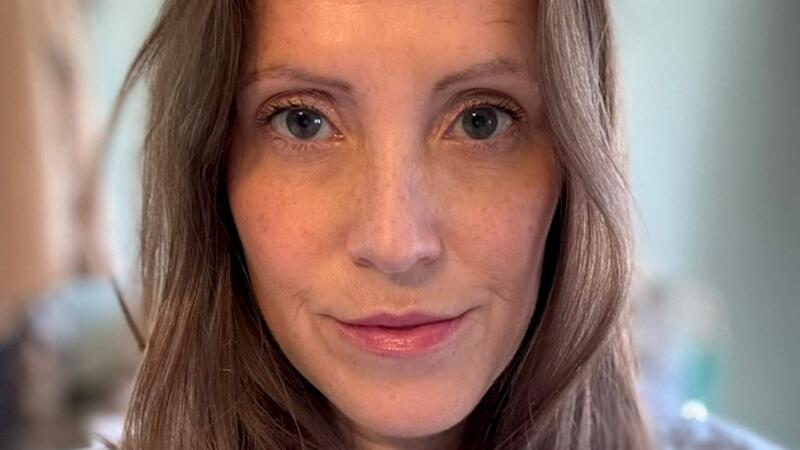You are viewing your 1 free article this month. Login to read more articles.
Kirsty Capes | 'It’s important to have stories about the care experience that are positive'
 Charlotte Eyre
Charlotte EyreCharlotte Eyre is the former children’s editor of The Bookseller magazine, and current children's books previewer. She has programmed ...more
Mills & Book staffer Kirsty Capes is hoping to change the perception of those who have been in foster care with her powerful first novel, Careless

Charlotte Eyre is the former children’s editor of The Bookseller magazine, and current children's books previewer. She has programmed ...more
Half way through my interview with Kirsty Capes, she mentions the fact that most people can’t name books about children in care. I rack my brains before feebly coming out with: “Tracy Beaker ?”, which makes Capes, whose new adult novel Careless is about a teenage girl in foster care, laugh.
“That’s all anyone can come up with,” she says. “Care-experienced people are statistically more likely to die of unnatural causes like suicide, more likely to have mental health problems... There are statistical disadvantages you have just because you’ve been through the care system. But that narrative gets reinforced in TV and all kinds of media, and the only representation young children in care see of themselves is a very negative stereotype that gets reinforced again and again. It’s really important to have stories about the care experience that are positive.”
I love romance novels, but I wanted to write a book where the happy-ever-after is not the resolution of a romantic relationship.
Careless is about a teenage girl, Bess, who lives in Shepperton with her foster parents and their biological daughter. In the opening pages, Bess finds out she is pregnant in a kebab-shop toilet and the novel follows her journey in deciding whether she should have the baby or have an abortion. It also charts her ongoing relationships with her foster family, the boy who got her pregnant (Boy) and her best friend (Eshal). The word “powerful” is overused in literary journalism, but it absolutely applies to Careless, which Benjamin Zephaniah described as “the literary equivalent of gold dust”. The emotional fearlessness of Capes’ writing left me reeling for days.
At the heart of the novel is Bess’ relationship with Eshal, who is British Bengali and goes through her own coming-of-age journey over the course of the novel. Careless is essentially a love story between two friends, says Capes. “I wanted to write a book that was for women. I work in romance publishing [for Mills & Boon] and I love romance novels, but I wanted to write a book where the happy-ever-after is not the resolution of a romantic relationship. A lot of the time female friendship is portrayed as toxic and combative, but I wanted to write about a stable and nurturing friendship. Bess doesn’t have that anywhere else in her life.”
By contrast Boy, whose real but seldom-used name is David, represents the relationships all young girls have, says Capes, where they are obsessed with someone who just isn’t very interested in them. Bess and Boy meet when Boy crashes a stolen car and takes Bess’ bike, and despite developing a sexual relationship with Bess, he isn’t particularly nice to her—at one point he steals the money she has hidden in her bedroom. He represents the person young girls fix on when they want a grand romance, says Capes. “You kind of reinterpret their behaviours and actions in a way that suits the narrative you have built up about this person.”
When Bess falls pregnant, she is faced with a choice and making decisions is something she doesn’t often get to do, Capes adds. “There are not many other aspects of her life where she has the ability to exercise her own choice. Making that choice allows her to re-examine other parts of her life and fight back against things that have been imposed on her by her foster parents and the care system. It helps her establish her own agency.”
Falling pregnant leads Bess to think about motherhood and her relationship with her foster mother Lisa, who takes a decision at the end of the novel; one I found sad and shocking. Capes has more sympathy for Lisa than I did, but points out that fostering is a financial transaction, so the dynamic can be “problematic and murky”. Bess also goes, uninvited, to visit her biological mother at her house and the tragic reason why she is in care is revealed.
I tell Capes that when I was reading the book I really didn’t know whether Bess would choose to have an abortion or carry on with the pregnancy, which pleases the author. “I was really keen to basically not be preachy and make out that the decision Bess makes is the only right one,” she says. “I wanted to present the situation without prejudice, or pushing the reader one way or another, and have Bess make the decision that is right for her but not pass judgement on that decision.”
Capes is only 27 years old and, like Bess, grew up in care in Shepperton. The emotional thrust of the book is based on her own life, although a lot of the plot is fiction, and she wrote it while doing a PhD in creative writing at Brunel University. “I started writing something completely different: this feminist, dystopian, The Power-type of thing. I got a quarter of the way through before I realised there was this other book I was meant to be writing.”
Altogether, the book took around five years to write. It went through three or four complete drafts, and although Capes knew what the emotional heart of the book was, making the plot work and pulling out some of the relationships were harder. Bernardine Evaristo was her supervisor at Brunel, and Capes says the 2019 Man Booker Prize winner was “tough” but that the story is “1,000% better” because of her input. “If I gave her a chapter that I had rushed out, she would know, and she is so knowledgeable about the technical aspects of writing. Descriptive imagery is one of her big things. A lot of the process of writing with her as my supervisor was world-building, trying to get as much information as I could out of the story, or finding ways to convey meaning.”
The early ambition
Capes says she was a big reader from a young age and made a heart-over-head decision to study creative writing at university (she turned down an offer to study linguistics at York), but she says she worked really hard at Brunel, where she took her first degree too, submitting her writing to magazines “relentlessly” and writing film reviews for websites. She had various jobs at the same time as studying, including doing marketing for a golf company and working at a literary festival, and now works for Mills & Boon full-time. She also managed to squeeze in a couple of courses with Curtis Brown Creative and WriteNow with Penguin, and jokes that if she has any spare time on her hands “something has gone wrong”.
Her agent, Anwen Hoosen, sent the Careless manuscript out to publishers a couple of times: the first time there were lots of rejections and editors who just didn’t reply, leaving Capes to think the story was “too weird”, “not commercial enough”, or that people just don’t want to read about foster-care children. The second time it went out, however, it was picked up by Charlotte Mursell at Orion.
Capes said Mursell and her team “completely understood” what she was trying to say with the book. “It’s been a long time coming, but I couldn’t have found a better publisher.”
The author is working on a second book and is “excited and nervous” about the release of her début. “I hope it changes people’s minds about care leavers and what we can expect from people who have grown up in foster care. I think the book is very hopeful. It’s about aspiration and understanding that no matter what disadvantages you start out with, your life is just as valuable. Your hopes and dreams are just as valid.”
Book extract
The long and short of it is this: it’s the kind of day where the heat sticks plimsolls to tarmac and I’m standing in the toilet in the Golden Grill kebab shop with a pregnancy test stuffed into my backpack.
I’m waiting for my best friend Eshal. The toilet is not a cubicle but a single room with dirty magnolia tiles that need regrouting and oily lipstick smears on the mirror. The metallic smell of periods is clogging the air and my forehead is damp with sweat. My face watches me from the mirror, distorted by the cherry-coloured imprints of puckered lips, my skin the colour of tiles, too much eyeliner smudged around my eyes and a thin sheen of moisture coating my upper lip.
The first thing I ever learned about my biological mother is that she was very into astrology. The zodiac. I have a pattern of freckles on my lower back, which, if you look at in a certain way, resembles the Big Dipper, and I wonder whether she has the same constellation on her own body.










